|
by Luv Mehta Last time, I went through Series 1 of Doctor Who, having no idea about what it would be like, and actually did quite like it. This time, we’re going to look at Series Two, David Tennant’s first series (and the one everyone tells me is the first real good NuWho season). Let’s have a look. Before we proceed, though, we’re going to add a new item to our retrospectives - The Death Level. Doctor Who is a proudly silly sci fi TV show, sure, but it’s also very, very confident in killing off huge numbers of supporting characters in the blink of an eye. Also, we’ll introduce a somewhat different system for every episode. Here they are, as follows:-
Now, with that done, let’s move on to each episode! The Christmas InvasionWhat’s weird about this episode is that our new Doctor, David Tennant, spends most of its runtime unconscious and offscreen. Rose does most of the heavy lifting of this episode, performance wise, being conflicted about whether she can save him and whether he’d still be the same person she spend so much time with. The killer Santas are a nice touch, as is the murderous Christmas tree. The lack of any translation for the Sycorax at the beginning also drills deeper into our heads that this alien threat is all the more scarier, now that it genuinely feels alien. When the Doctor finally does emerge from his sleep, Tennant lays all our doubts to rest - this guy’s funnier, goofier, prone to rambling about complicated stuff, but the darkness hasn’t gone away - he pretty much murders the leader of the Sycorax once he throws away his chance at running away. “No second chances,” he says, “I’m that sort of a man.” The most interesting part of this episode, though, is Harriet Jones. Returning from Aliens Of London/World War III, she’s finally become Prime Minister, exactly as the Doctor foretold (with a stupid gag where she introduces herself as PM in the same way she used to introduce herself back when she was unknown) but she’s far more willing to jump to action, destroying the Sycorax ship as it backs away after defeat. Her logic is sound as well - the Doctor’s not around forever, he comes and goes, so what guarantee do they have that he’ll always be there to save them. Even then, though, the Doctor’s position is justified too - she has essentially committed a war crime in the name of defense, taking a lot of lives in the process. So when the Doctor enacts vengeance on her by destroying her position, it’s not the act of a benevolent God who knows what’s best for us, but a vengeful, powerful other, unable to understand the smaller scale picture (like the deaths of two humans from her office he couldn’t prevent, being unconscious at the time), with his own sense of alien morality (teased out in the previous season’s Charles Dickens episode, The Unquiet Dead). Death Level: War Crimes, for the blown up Sycorax ship. Rating:- Good, But Flawed. Somewhat harmed by the prolonged absence of the Doctor not giving a lot of good moments. New EarthThis episode must be heaven for furries. We finally get a proper intergalactic adventure with Tennant’s Doctor and Rose, which brings up another complication - the new Doctor is very flirty, and him and Rose have a lot more chemistry than before, which makes the possibility of a romantic relationship loom even bigger over the series. The cat humans here have really, REALLY good makeup done, extremely impressive for a TV show that often looks like it’s done on a budget. Some iffy CGI (the cat matron - catron? - bursting into orange warts) aside, a really good looking episode this time, with great clean looking rooms and wards. And Cassandra’s back! Pretty confused how, though, but she says it’s because the brain in the tank survived (she talks about getting skin off her back to create a new ‘her’). Curious how the Doctor didn’t notice that in his righteous anger, but oh well. The main hook of the story is the creation of thousands of clones to be used as experimental guinea pigs for human experimentation, which creates another grey area of morality, albeit a skewed one. Human beings are benefiting from the deal, but at the expense of petri-dish grown lives who live out a life of pain, never even seeing the sun. The ending is a bit weird, with all the murders and manipulation Cassandra has committed so far being forgotten in favour of giving her a happy death this time, but maybe that’s just a feature of the tenth doctor. No second chances, but no harsh deaths either. We’ll see if that’s true, as the show progresses further. Death Level: Extreme Agony, because it can’t be easy dying of every sickness at once. Rating:- Good, But Flawed. We’ve seen better. Tooth And ClawThis episode is about werewolf-worshipping British kung fu monks of the Victorian era hatching a plan to take over the throne of the Queen. ...yeah. It’s funny how the Doctor and Rose keep trying to make the queen say, “I am not amused”, even if she ultimately says it to banish the Doctor into exile. Which is understandable, really, since she’s scared of elements of fiction she never believed turning out to be true. But it might go further than that, and that leads to my biggest problem with this episode. Back in New Earth, the previous episode, the Doctor and Rose were characterized by empathy for living beings, with Rose being possessed clearly given away by her “not caring”. Here, immediately following a royal guard’s sacrifice, the Doctor and Rose choose to get giddy with glee about fighting a werewolf, ignoring all the deaths around them. It’s possible that this is due to a sense of detachment being necessary for their lifestyle, but it directly contradicts previous episodes. Ah well, I’m quite happy to see so much care being put into supporting characters and their characterization, like the Queen, Sir Robert and his wife. For characters who seem to be destined to appear only in one story, they’re quite fleshed out, deepening this part of the universe by a huge amount. Which is much more than a lot of shows, or even movies, tend to attempt. Death Level: Extreme Agony, because being mauled and ripped apart by a werewolf does hurt quite a bit more than a toothache. Rating:- Okay, If Unexceptional. The set design is great, the acting is great, but that moment between the Doctor and Rose is too troubling. School ReunionThis episode feels like a confluence of two different elements of varying quality, one of which is much more interesting and one of which just… feels weird. Let’s talk about the latter first. The school setting is meant to house vampire teachers unlocking children’s brains to decode the universe by using their unlocked brains and… their souls? “What is life, but a spark that makes particles and bodies move?” or something to that effect is what the Doctor said all the way back in Series One, The Doctor Dances, so looking at the concept of souls here seems a little far fetched. And the whole thing feels too mean-spirited, with the episode opening with a little orphan girl being murdered. The meat of the episode, though, is in the return of Sarah Jane Smith, a classic Who character. Now, being a noob, I don’t know anything about her, but the show does detail and develop her character very well, drawing a parallel between her exploits and Rose’s ongoing adventures, as well as dealing with how the Doctor deals with his companions always aging past him - and how they deal with him inevitably leaving their lives. The Doctor does promise Rose he won’t do the same with her, but will that be true, as they keep moving forward? Death Level: Extreme Agony, because of little orphans eaten by man-bats. Rating:- Good But Flawed. Wildly uneven tones clash with the interesting companions’ side of the story. The Girl In The Fireplace“It’s the way it’s always been, the monsters and the Doctor. Seems you can’t have one without the other.” The first great episode of the season, this story focuses on the Doctor moving in and out of the life of Madame de Pompadour, being smitten by her (more intellectually than romantically), and this fascination completely hinges on the performance of the actress playing Reinette, and she completely kills it. Equal parts fearful, commanding and intelligent, Reinette is perfect not as a potential companion to the Doctor, but as his equal, going further into his mind than any have ever gone before, making him ready to give up 3000 years of his life just to save her. The whole episode moves like a carefully constructed dance, moving from one part of her life to the other with precision, rhythm and grace. And the production design here is excellent, too, alternating between grimy future technology and ancient regal finery. All in all, an excellent episode. Death Level: Mass Murder, for the people repurposed as ship parts before the Doctor came aboard. Rating:- Sci-fi Classic. Welcome back, Doctor Who. Rise Of The Cybermen/Age Of SteelThe first episode to deal with a parallel universe, and the TARDIS had to land in the early 21st century London. How is it that so many world domination plots crop up in Britain? My sister tells me the Cybermen are one of the most iconic villains of Doctor Who. This episode is meant to serve as their revival, and in that respect it certainly does succeed, even if the emotion-and-flaws versus stagnation-and-perfection debate has been tackled by many, many more sci fi stories. The real strength of this two-parter, though, lies in the supporting characters. Pete Tyler returns from Father’s Day, the best episode of the past season, and his storyline with Rose is reliably strong again. The real wonder of this episode is Mickey, though. Moving far past the initial annoying impression he gave in Season One, Mickey has proven himself multiple times, being smart and daring and grounded, and his treatment as the Butt Monkey of the group has been wholly unjustified. In fact, the Doctor and Rose have pretty much been united in their casual dismissal of Mickey since the former’s regeneration, while the previous Doctor did grudgingly accept him as a worthy ally once he went past the usual “stupid ape” judgement and contempt he usually kept. In fact, combine that with their previous geeking out over a werewolf immediately following a heroic sacrifice for their survival, and you’ll notice that they’re no longer balancing factors for each other as much as they’re equals delighting in the same kinds of activities, and while the Doctor does warn Rose not to go talk to her father in this universe, he’s not nearly as strict or obstinate about it. The conclusion I arrive at is disturbing, and I hope it’s disproved by the later episodes, but the Tenth Doctor and Rose are no longer good for each other, and it’s exactly because of their increasingly easygoing chemistry. But I digress. Watching Mickey meet up with his grandmother (dead in the usual universe) and breaking down, watching an alternate, falsely tough version of himself die in front of his eyes and still have the courage to brave danger, makes it all the more understandable how he would have made quite an able companion himself - but he’s better off for not doing so. Death Level: Mass Murder, for the many people converted into Cybermen via hacking and sawing. Rating:- Okay, If Unexceptional. Better than the last season’s first two-parter, at least. The Idiot’s LanternSO. MANY. DUTCH. ANGLES. HAVE WE WANDERED INTO BATTLEFIELD EARTH SOMEHOW? The episode has a fun concept, a very fun hammy villain (“HONGRYYY!!”), cool CG (the blank faces literally getting sucked into the TV), a good attempt at an emotional throughline (the patriarch of the family knowing his place) and yet, for some reason, I can’t really remember much of this episode. Despite having watched this five minutes ago (as of writing these words). Doctor Who has, till now, given a lot of stories of varying quality, from instant classics to one-time-watch-and-criticize, although nothing has been truly bad till now. This one’s in the middle, likeable, but a one-time-watch. Death Level: Quick and Easy, for the single death of Mr Magpie, that served more as a release from his pain. Rating:- Meh. I doubt anyone would remember this for anything other than the woman on telly shouting “HONGRYYY!” all the time. The Impossible Planet/The Satan’s PitAnd here we get another instant classic. The Doctor and Rose arrive on a planet orbiting a black hole, and the sci fi setting grounds the feel of the story to such an extent that the hellishness of the underlying mystery stands out all the more, sending the Doctor himself into a crisis of belief in rationality. And as everything collapses around him, as the station falls into chaos and death, as the Beast himself looks into their souls and uses their fears to try and send them into despair, he has to go against everything, even his own fear, to prove it wrong. It has to be stated again, but Doctor Who has a great way of making supporting characters feel like living, breathing people, each with their own personalities and flaws, and this story excels at it, with each character moving past their weaknesses to do the best they can in their situation, which works brilliantly to reinforce the Doctor’s belief in humanity. The performances are all brilliant across the board, as is the production design. And the Ood are an interesting concept as well, a docile servant race you feel sorry for, even with their creepy design, even when their minds ultimately get taken over. Also, this may be Rose’s finest outing yet, constantly rallying the survivors and acting as a leader even for their captain, especially since the Doctor’s unable to help for the majority of the episode, venturing further into the pit of Satan himself. The concept of faith, constantly referred to throughout the episode, comes to fruition in the end when the Doctor places his belief in Rose to do the right thing, and so do we. Death Level: Mass Murder for all the Oods that were aboard the doomed planet. Rating:- Sci-fi Classic. Everything’s at its absolute best here. Love And Monsters...and we go from an amazing story to probably the worst Doctor Who story yet. Not that it’s all bad. There’s a meta aspect to the L.I.N.D.A. crew representing Doctor Who fandom, and their coming closer as friends acting as a stabilizing core for each other acts as the emotional center of the show. Jackie’s plot thread also works well, with her going from lonely and desperate to angry and righteous. The first problem is the appearance of Victor Kennedy. I understand that he’s supposed to represent the obsessive and domineering aspects of the fandom, but the episode just loses all its warmth and happiness and enjoyment when he comes by. And it takes so frustratingly long to get to his ulterior motives that when we finally get to see his alien form (a disgusting orange human assimilator with faces all over his body - even his ass) it’s nothing but disappointing. The farting Slitheens were at least creatively designed. This guy looks like Fat Bastard with faces all over his body. The second problem, though, and the one that derails the entire episode, is the ending. When the Doctor finally shows up to defeat the bodyface alien, he saves the protagonist’s girlfriend from dying - by dooming her to a life worse than death, trapped in a slab of concrete, doomed to a life of giving the protagonist of this story oral sex. Brilliant. Death Toll: I dunno if I should go with Quick And Easy (because the assimilation wasn’t quick) or Extreme Agony (because they weren’t really going through a painful existence) so I’ll just make up a new one for this episode - AssFace. Rating:- Farting Slitheens. Despite some of the joys of L.I.N.D.A., there’s too much to dislike about this episode. Fear HerMuch better than the previous episode, but another inessential experience like The Idiot’s Lantern. The concept of a child drawing people to imprison them in paper is very inspired, and I like that things can be created through the drawing as well - though this isn’t really explored much. I also like that most of the final legwork has to be done by Rose, who’s shown by now that she’s pretty much a human equal to the Doctor now. What doesn’t work, though, is that it’s all kind of boring and lacks logic. The central family dynamic banks on a child actress who doesn’t really do a good job, a mother who constantly leaves her daughter’s room without any reason (despite the Doctor explicitly telling her to NOT LEAVE HER DAUGHTER). The ending involves the Olympic torch for some godforsaken reason made up on the spot. Death Level: Everybody Lives! Holy cow that’s rare. Rating:- Meh. Fun concepts combined with bad acting lead to an average story. Army Of Ghosts/DoomsdayIn hindsight, the last season’s two-parter finale was pretty problematic, since the character work done to bring the Doctor to the point where he refused to commit genocide and become like the Daleks was nullified by the Rose ex machina conveniently killing off all the Daleks in one stroke. It’s one of the cooler moments Rose has, which she capitalizes on by using the story to inspire terror in the Daleks here, but it’s still quite problematic. Speaking of which, the teaser for this episode lays in pretty heavily into the whole “Rose is going to die” conceit, which I wouldn’t have bought in any other TV show, but given how Doctor Who is content with letting named supporting characters die in droves, the threat feels real. Not that this two-parter ever capitalizes on this fear till the very end, but when it does, it’s pretty grim. Coming back to this two-parter, it starts off - again, like the last season finale - with a very weird conceit about ghosts in the world being accepted into humanity. While it wrings its jokes out from the concept well enough, it feels completely disconnected from what comes next. And what comes next is a Cybermen invasion from the parallel universe being disrupted by a Dalek fleet. Which is only finally established at the very end of the first two-parter. When it does get going, there are a lot of good moments (the Time Lord-designed Ark being simply understandable through current knowledge of their science - it’s bigger on the inside!) as there are a lot of weird moments (the Torchwood director’s Cyber(wo)man with the solitary oil tear). The strengths of the episode, though, lie majorly in the character interactions. Most of these characters have been introduced and fleshed out in multiple episodes, so seeing them come back and bounce off each other in a lot of scenes, funny or emotional, works really well. The scene where Jackie and Pete meet alternate universe versions of each other works great, as does the final scene with Rose and the Doctor. And the way Rose departs from the show, while being a little too convenient, does work well within the established science of these universes. Death Level: Genocide, for the destruction of the Daleks by forcing them into the Void. Rating:- Fantastic! Great character moments and a general sense of continuity with the science make this a pretty great story. Ultimately, though, I can’t find an underlying theme for this season like the previous one, and while Tennant does a brilliant job as the Doctor, there aren’t a lot of great quality stories like the previous one, or even stories with a few fantastic moments (like Boom Town and the dinner debate). It’s good, sure, and it does make you want to watch more, but it loses out by comparison to series one. For ranking the top three episodes, while the first two are easily brilliant, the third isn’t as good as the rest, but here goes:-
Now for the next season!
Follow us on Facebook and Instagram to be notified whenever we release new articles.
Do you use an RSS reader? Even better!
0 Comments
Leave a Reply. |
Categories
All
Archives
December 2022
|
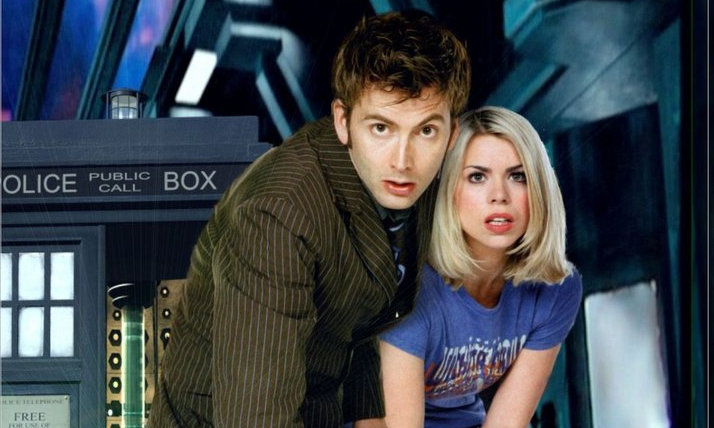
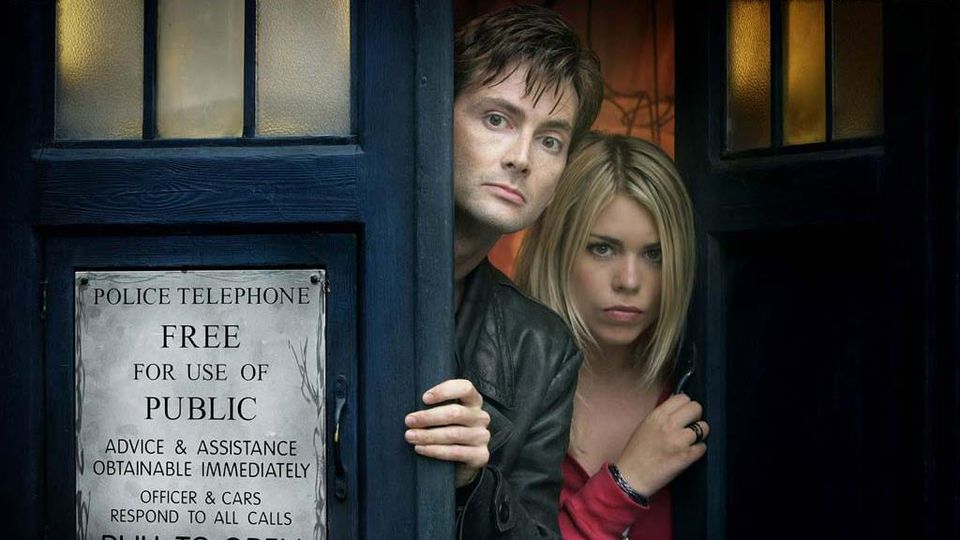
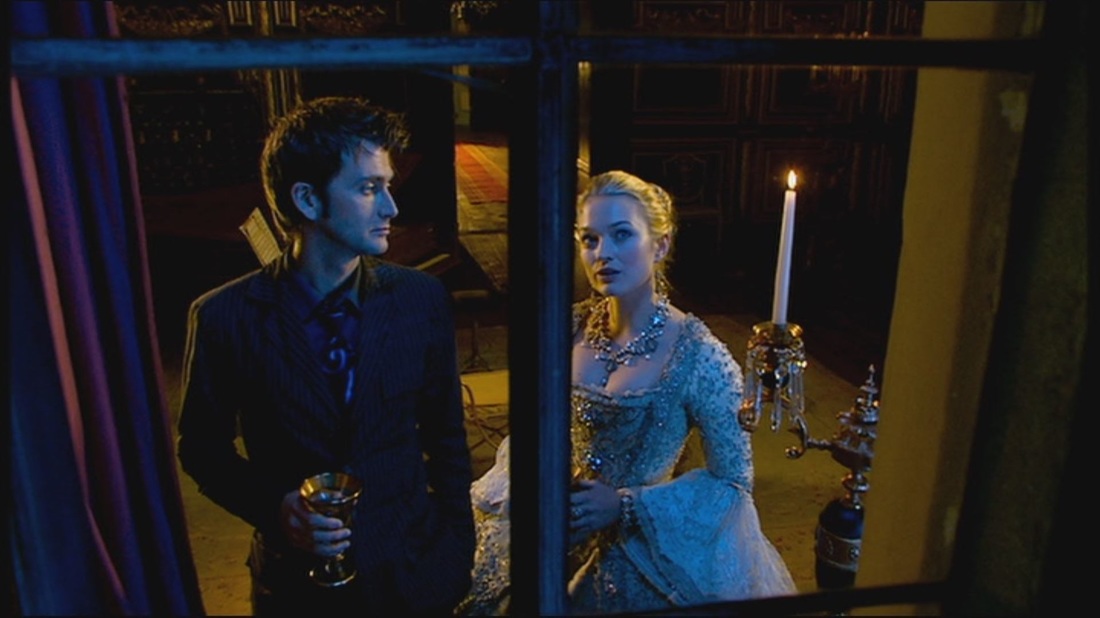
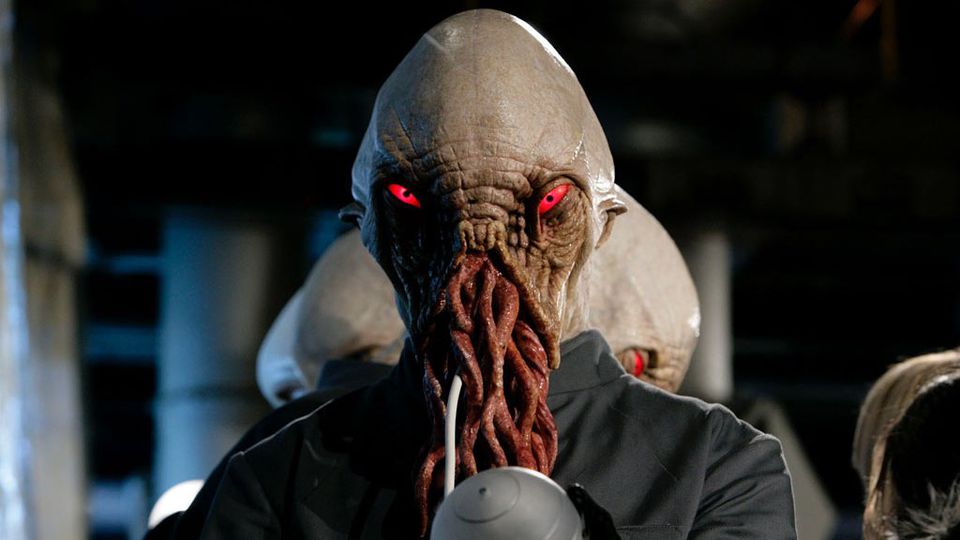
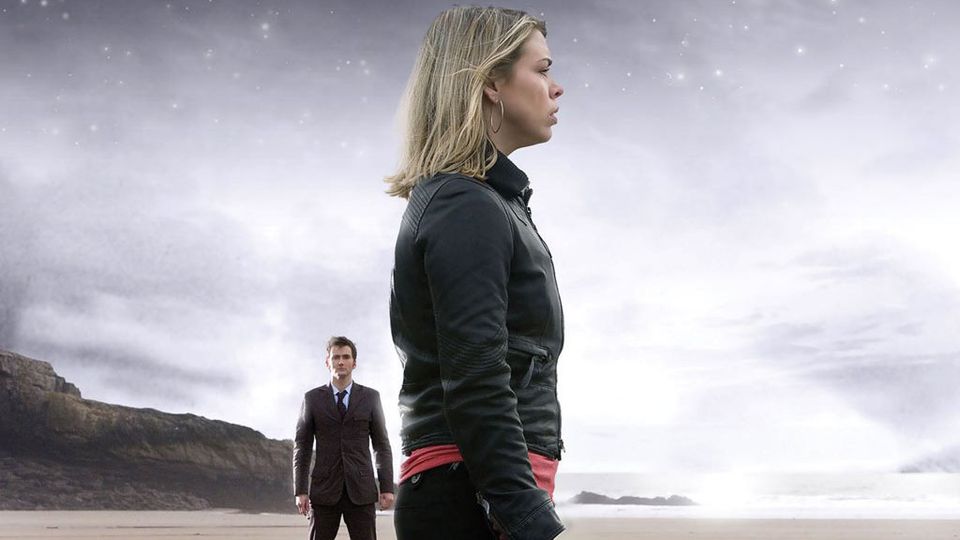
 RSS Feed
RSS Feed
